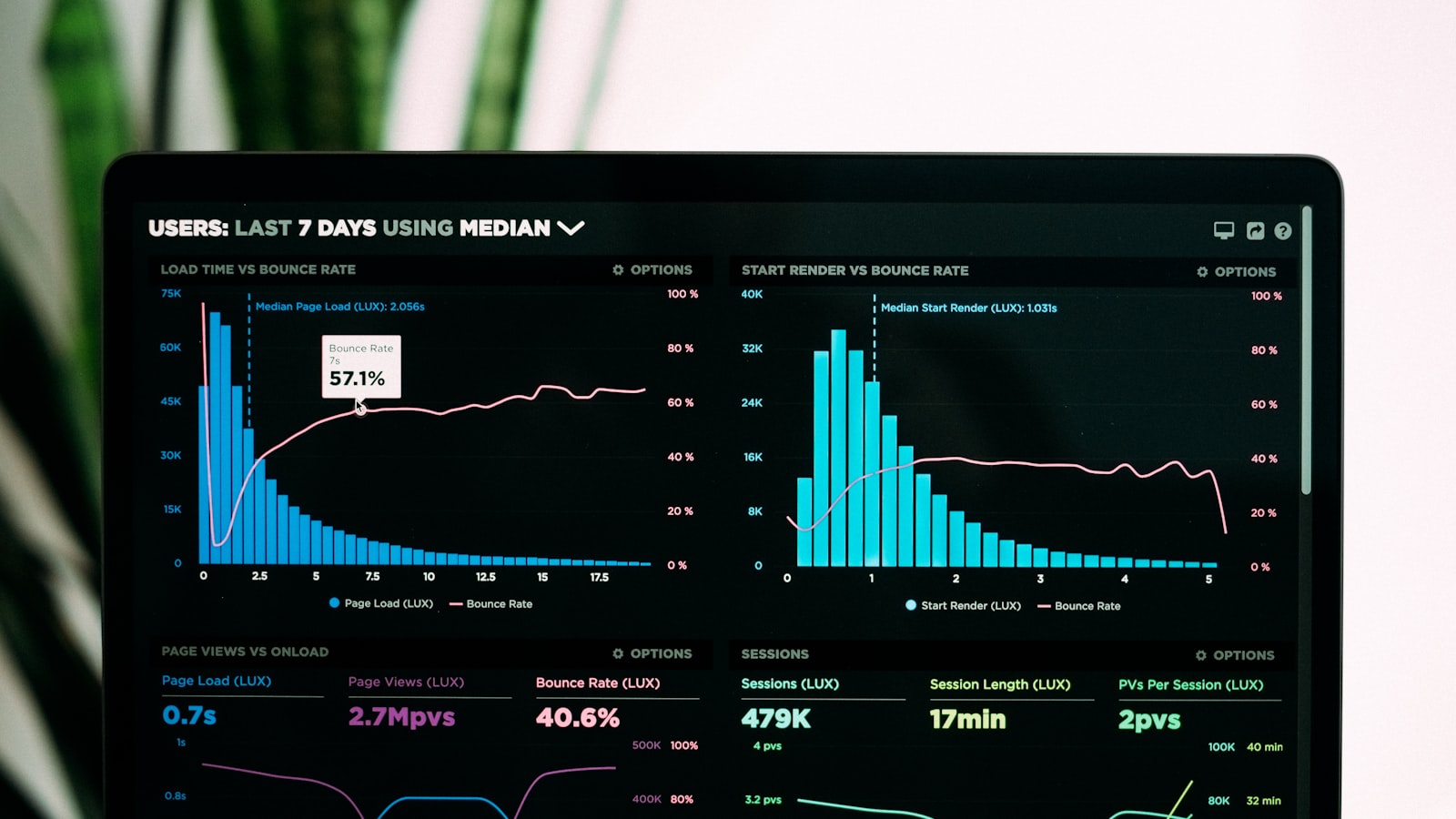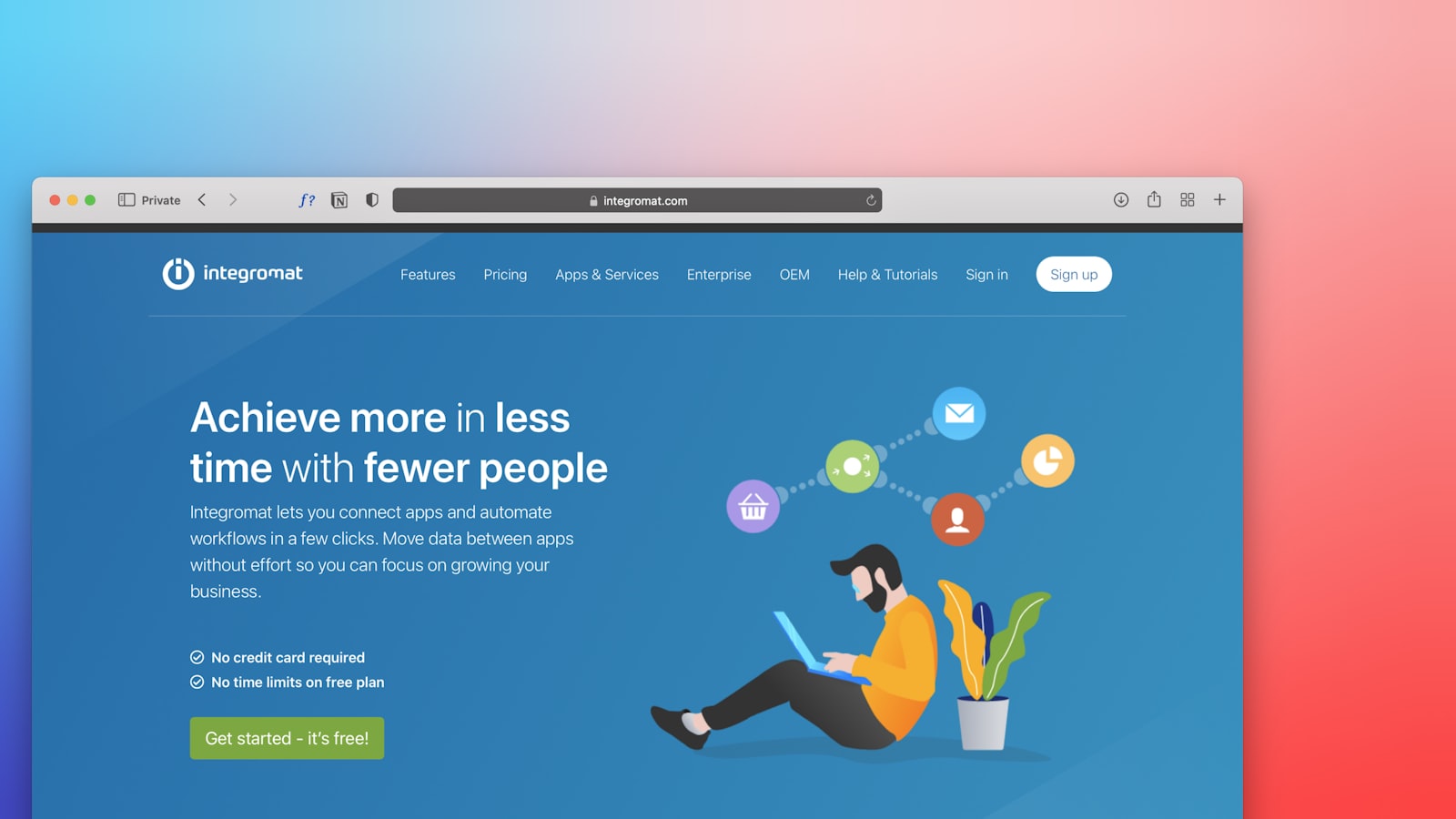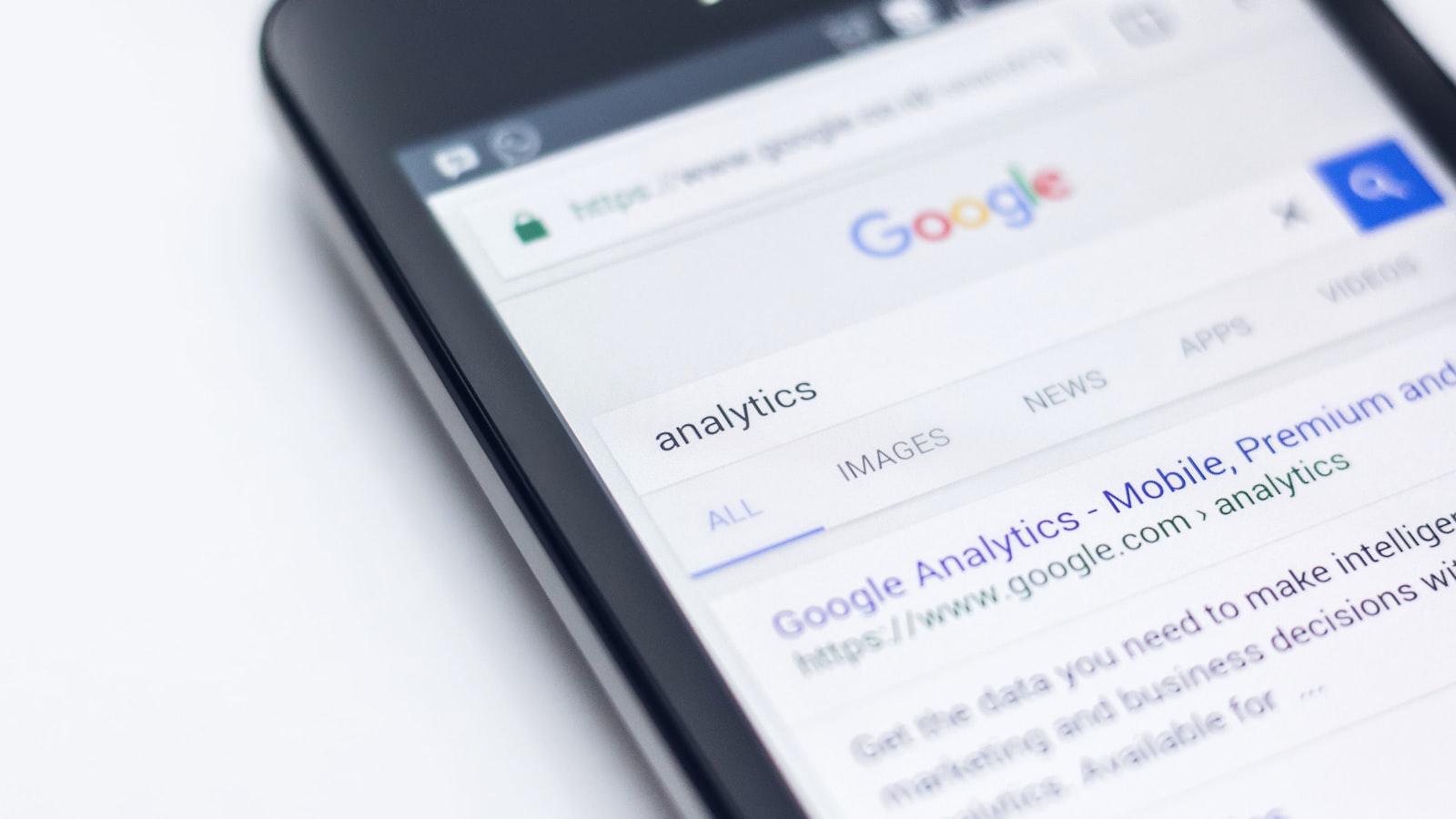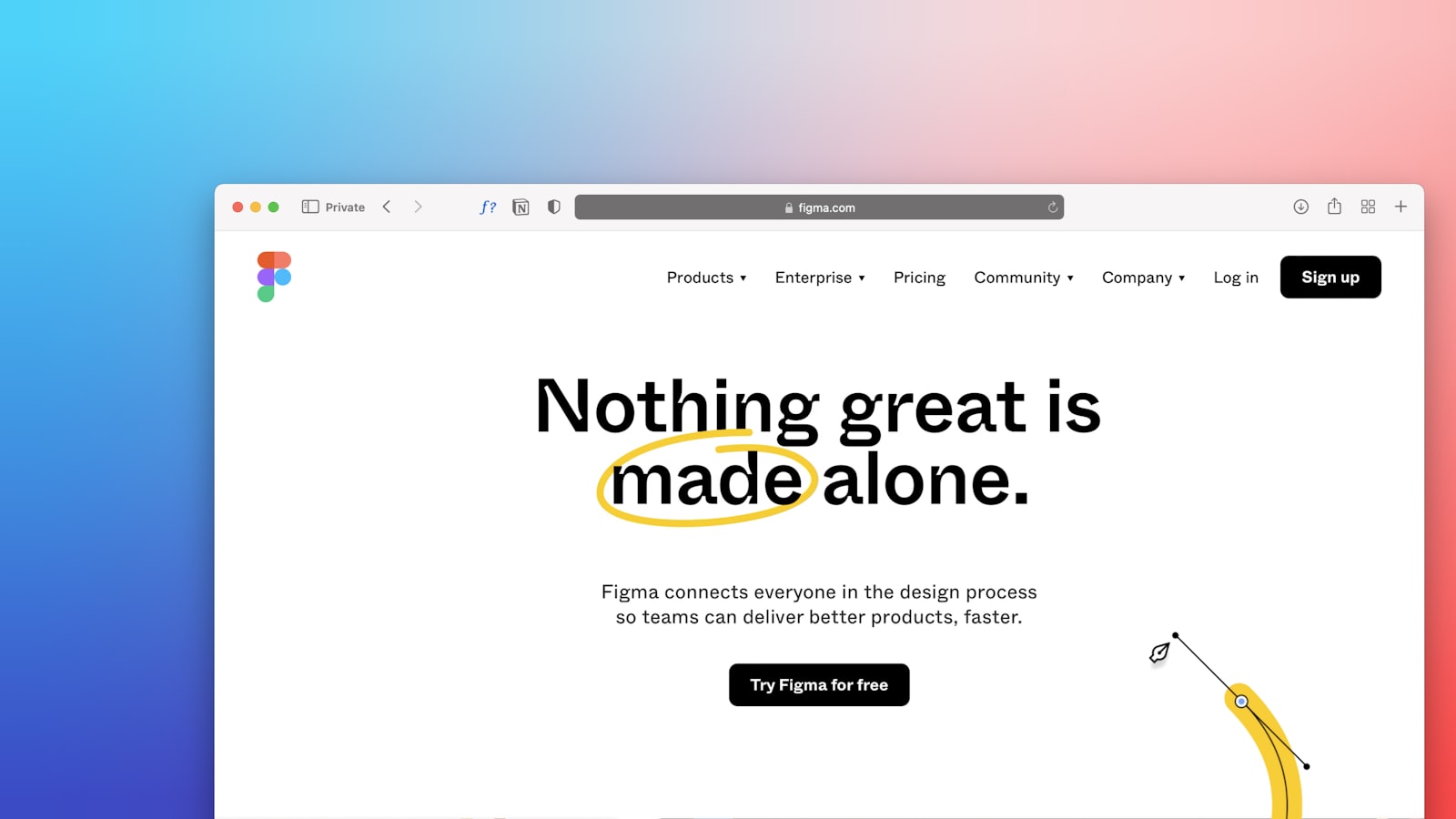The Rise of Specialized B2B Solutions- Trends and Opportunities
The Rise of Specialized B2B Solutions- Trends and Opportunities
The Rise of Specialized B2B Solutions- Trends and Opportunities
Explore the rise of specialized B2B solutions, uncovering latest trends and opportunities driving business growth and efficiency in the modern market.
Explore the rise of specialized B2B solutions, uncovering latest trends and opportunities driving business growth and efficiency in the modern market.



The Rise of Specialized B2B Solutions: Trends and Opportunities
Introduction
Alright, let's cut to the chase. Gone are the days when generic B2B solutions could get the job done. Welcome to the era of specialized B2B solutions – where one-size-fits-all is as outdated as dial-up internet. But why the sudden shift? What's driving businesses to seek out these tailored solutions? And more importantly, what opportunities does this present for savvy enterprises ready to adapt?
In this article, we'll break down the factors fueling the rise of specialized B2B solutions and uncover the golden opportunities waiting for businesses that can pivot quickly. Trust me, you don’t want to miss out on this trend.
Overview of B2B Solutions: A quick look at the evolution of B2B services and why specialization is the name of the game.
Importance of Specialized B2B Solutions in Today's Market: How these niche solutions are solving specific pain points and driving growth.
So, buckle up and get ready to explore the transformative power of specialized B2B solutions. Your business strategy is about to get a much-needed upgrade!
Current Trends in Specialized B2B Solutions
Industry-Specific Solutions
Specialized B2B solutions are becoming increasingly tailored to meet the unique needs of different industries. Here are some standout examples:
Healthcare: Platforms like Veeva Systems provide cloud-based software tailored for the life sciences industry, enhancing regulatory compliance and streamlining clinical trials.
Manufacturing: Plex Systems offers ERP solutions specifically designed for manufacturers, improving production efficiency and supply chain management.
Retail: Shopify Plus caters to high-volume merchants with advanced e-commerce solutions, enabling better customer engagement and sales analytics.
The benefits of these tailored solutions are manifold:
Enhanced Efficiency: Industry-specific tools streamline operations by addressing unique workflows and regulatory requirements.
Improved Compliance: Solutions designed for specific sectors help businesses stay compliant with industry standards and regulations.
Better ROI: Tailored solutions often lead to higher return on investment due to their ability to solve niche problems effectively.
Integration of Advanced Technologies
The integration of advanced technologies is reshaping specialized B2B solutions. Let's look at some key innovations:
AI and Machine Learning in B2B Solutions
Artificial Intelligence (AI) and Machine Learning (ML) are transforming B2B operations. For instance, AI-driven platforms like Salesforce Einstein provide predictive analytics, helping sales teams forecast trends and personalize customer interactions. This shift is moving beyond content creation to include prospecting, sales coaching, and more.
Blockchain and Its Impact on B2B Transactions
Blockchain technology is making waves in B2B transactions by ensuring transparency and security. Companies like IBM are leveraging blockchain to create secure and immutable transaction records, reducing fraud and enhancing trust between business partners.
IoT and Connectivity in B2B Operations
The Internet of Things (IoT) is revolutionizing how businesses operate. In manufacturing, IoT-enabled devices provide real-time data on equipment performance, allowing for predictive maintenance and reducing downtime. This connectivity enhances operational efficiency and decision-making.
For more insights on selecting the best B2B solutions for your business, check out our guide on how to select the best B2B demand generation agency.

Key Opportunities in the B2B Market
Emerging Markets and Niches
The B2B market is ripe with opportunities, especially in emerging markets and niche sectors. Identifying high-growth sectors can give businesses a competitive edge and open new revenue streams.
Identifying High-Growth Sectors
Healthcare Technology: With the rise of telehealth and digital health solutions, the healthcare sector is booming. Companies providing specialized B2B solutions in medical software, patient management systems, and telemedicine platforms are seeing significant growth.
Green Energy: As the world shifts towards sustainability, the green energy sector is expanding rapidly. B2B solutions in renewable energy technologies, energy storage, and smart grid systems are in high demand.
Fintech: Financial technology continues to disrupt traditional banking. Solutions like blockchain for secure transactions, AI-driven financial analytics, and mobile payment platforms are at the forefront of this growth.
Case Studies of Successful Market Penetration
Let's look at some real-world examples:
Company A in Healthcare Technology: This company developed a cloud-based patient management system tailored for small clinics. By addressing specific needs such as appointment scheduling and patient records, they captured a significant market share within two years.
Company B in Green Energy: Specializing in solar energy solutions for commercial buildings, this company focused on regions with high solar potential. Their targeted approach led to a 40% increase in sales within the first year.
Company C in Fintech: By offering a blockchain-based payment platform, this company provided a secure and efficient way for businesses to handle transactions. Their innovative solution gained traction quickly, resulting in partnerships with major financial institutions.
Customization and Personalization
In today's market, the demand for personalized B2B solutions is skyrocketing. Businesses want solutions tailored to their unique needs rather than one-size-fits-all products.
The Demand for Personalized B2B Solutions
Why is personalization so critical?
Enhanced Customer Satisfaction: Customized solutions address specific pain points, leading to higher satisfaction and loyalty.
Increased Efficiency: Tailored solutions streamline operations, reducing time and resource wastage.
Competitive Advantage: Offering personalized solutions sets businesses apart from competitors who provide generic products.
Strategies for Offering Customizable Solutions
Here are some strategies to consider:
Customer Feedback: Regularly gather feedback to understand customer needs and preferences. This can be done through surveys, interviews, or direct interactions.
Modular Design: Develop solutions with modular components that can be easily customized based on client requirements.
Agile Development: Use agile methodologies to quickly adapt and tailor solutions as per client feedback and market changes.
For more insights on how to create and leverage B2B buyer personas for targeted marketing, check out this guide.

Challenges and Solutions in Implementing Specialized B2B Solutions
Common Implementation Challenges
Technical Barriers
Implementing specialized B2B solutions often comes with a host of technical challenges. Legacy systems can be a significant hurdle, as they may not integrate well with modern applications. These outdated systems can become bottlenecks, slowing down processes and reducing efficiency.
Data management is another critical issue. Poor data quality, isolated databases, and incorrect formatting can lead to significant problems. Establishing robust data governance procedures and consolidating databases are essential steps to mitigate these issues.
Organizational Resistance to Change
Change is hard, especially in large organizations. Employees may resist new systems due to fear of the unknown or a lack of understanding. This resistance can slow down the implementation process and reduce the effectiveness of the new solutions.
To overcome this, it's crucial to foster a culture that embraces change. Providing adequate training and clear communication about the benefits of the new systems can help ease the transition.
Overcoming Challenges
Best Practices for Smooth Implementation
Here are some best practices to ensure a smooth implementation of specialized B2B solutions:
Thorough Planning: Before diving in, create a detailed plan outlining each step of the implementation process. This should include timelines, responsibilities, and potential risks.
Stakeholder Engagement: Involve key stakeholders from the beginning. Their input and buy-in are crucial for a successful implementation.
Training and Support: Offer comprehensive training programs and ongoing support to help employees adapt to the new systems.
Incremental Implementation: Rather than a big bang approach, consider implementing the new systems in phases. This allows for adjustments and improvements along the way.
Real-World Examples of Successful Overcomes
Let's look at some real-world examples of businesses that have successfully overcome these challenges:
Example 1: A Manufacturing Company
A large manufacturing company faced significant resistance when implementing a new B2B solution. By involving employees in the planning process and providing extensive training, they managed to ease the transition. The result was a more efficient system that improved productivity and reduced errors.
Example 2: A Retail Chain
A retail chain struggled with integrating their legacy systems with a modern B2B platform. They invested in a cloud-based solution that allowed for better data management and scalability. This investment paid off, as they saw a significant improvement in their operations and customer satisfaction.
For more insights on selecting the right B2B solutions, check out our guide on how to select the best B2B demand generation agency for your business.

Future Outlook for Specialized B2B Solutions
Predictive Analytics and Big Data
Data is the new gold, and it's reshaping the future of specialized B2B solutions. Companies are leveraging vast amounts of data to gain insights and make informed decisions. Predictive analytics and big data are at the forefront of this transformation, offering unprecedented opportunities for businesses to optimize their operations and strategies.
The Role of Data in Shaping Future B2B Solutions
Data-driven decision-making is becoming the norm. By analyzing historical data, businesses can identify patterns and trends that inform future strategies. This approach not only enhances efficiency but also helps in predicting market shifts and customer behavior.
Improved forecasting: Companies can anticipate demand and adjust their supply chains accordingly.
Enhanced customer insights: Understanding customer preferences and behaviors leads to better-targeted marketing campaigns.
Operational efficiency: Data helps in pinpointing inefficiencies and optimizing processes.
Predictive Models and Their Applications
Predictive models are being used across various industries to forecast outcomes and guide decision-making. Here are some real-world applications:
Supply Chain Management: Predictive models help in anticipating disruptions and managing inventory more effectively.
Customer Relationship Management (CRM): Businesses can predict customer churn and implement retention strategies.
Financial Forecasting: Companies can forecast revenue and manage risks more efficiently.
For more insights on how to leverage data in your B2B strategy, check out our guide on developing a winning B2B search marketing strategy.
Sustainability and Ethical Considerations
As businesses strive to be more socially responsible, sustainability and ethical considerations are becoming integral to B2B solutions. Companies are not just focusing on profitability but also on their impact on the environment and society.
The Growing Importance of Sustainable Solutions
Sustainability is no longer a buzzword; it's a business imperative. Companies are adopting sustainable practices to reduce their carbon footprint and promote environmental stewardship. This shift is driven by both regulatory requirements and consumer demand for eco-friendly products.
Energy-efficient operations: Implementing technologies that reduce energy consumption.
Waste reduction: Adopting practices that minimize waste and promote recycling.
Green supply chains: Partnering with suppliers who adhere to sustainable practices.
Ethical Implications and Compliance
Ethical considerations are equally important. Businesses must ensure that their practices align with ethical standards and comply with regulations. This includes fair labor practices, data privacy, and transparent operations.
Fair Labor Practices: Ensuring fair wages and safe working conditions for all employees.
Data Privacy: Protecting customer data and complying with data protection regulations.
Transparency: Being transparent about business practices and supply chain operations.
For more on building a sustainable and ethical B2B strategy, visit our article on selecting the best B2B demand generation agency.

Case Studies and Success Stories
Leading Examples of Specialized B2B Solutions

Real-world examples are the best way to understand the impact of specialized B2B solutions. Here, we’ll dive into some detailed case studies that showcase successful implementations and the lessons learned from them. These stories highlight how businesses have leveraged specialized B2B solutions to achieve remarkable results.
Detailed Case Studies of Successful Implementations
Case Study 1: ABC Manufacturing's Digital Transformation
ABC Manufacturing, a mid-sized company, faced challenges with outdated processes and inefficient supply chain management. They partnered with a specialized B2B solution provider to implement an AI-driven supply chain management system.
Challenge: Inefficient supply chain and outdated processes
Solution: AI-driven supply chain management system
Outcome: 30% reduction in operational costs and 20% improvement in delivery times
ABC Manufacturing's success demonstrates the power of AI in streamlining operations and cutting costs. For more on selecting the right B2B solution provider, check out our guide on selecting the best B2B demand generation agency.
Case Study 2: XYZ Tech's Blockchain Integration
XYZ Tech, a leading software company, sought to enhance the security and transparency of its transactions. They integrated a blockchain-based solution into their existing infrastructure.
Challenge: Need for enhanced security and transparency in transactions
Solution: Blockchain-based transaction system
Outcome: 50% reduction in fraud incidents and increased client trust
This case study highlights the benefits of blockchain technology in securing business transactions. For more insights on leveraging technology in B2B, read our article on developing a winning B2B search marketing strategy.
Lessons Learned and Key Takeaways
From these case studies, several key lessons emerge:
Customization is Key: Tailoring solutions to specific business needs can drive significant improvements in efficiency and cost savings.
Technology Integration: Advanced technologies like AI and blockchain can address specific challenges and enhance overall business operations.
Partnerships Matter: Collaborating with the right B2B solution providers is crucial for successful implementation and achieving desired outcomes.
These lessons underscore the importance of selecting the right specialized B2B solutions and partners. For more tips on choosing the best B2B marketing company, visit our guide on how to choose the best B2B marketing company.
Conclusion

Recap of Key Points
Throughout this article, we've examined the rise of specialized B2B solutions, highlighting the importance and benefits of industry-specific solutions. We've also delved into the integration of advanced technologies like AI, blockchain, and IoT, which are reshaping B2B operations.
We explored key opportunities in emerging markets and the increasing demand for customization and personalization in B2B solutions. Additionally, we discussed the common challenges businesses face during implementation and shared best practices to overcome these hurdles.
The Future of Specialized B2B Solutions and Final Thoughts
Looking ahead, specialized B2B solutions are set to become even more pivotal. The role of predictive analytics and big data will be crucial in shaping future solutions, providing businesses with deeper insights and more accurate forecasting capabilities. Sustainability and ethical considerations will also take center stage, as companies strive to balance profitability with social responsibility.
To stay ahead, businesses must continuously adapt and innovate. Embracing these specialized solutions can lead to significant competitive advantages. For more insights on how to select the best B2B demand generation agency for your business, check out this guide. Additionally, if you're looking to plan and execute a successful B2B event marketing campaign, this resource will be invaluable.
In conclusion, the landscape of B2B solutions is evolving rapidly. Staying informed and agile will be key to leveraging these opportunities. The future is bright for those ready to embrace specialized B2B solutions and the transformative potential they hold.
The Rise of Specialized B2B Solutions: Trends and Opportunities
Introduction
Alright, let's cut to the chase. Gone are the days when generic B2B solutions could get the job done. Welcome to the era of specialized B2B solutions – where one-size-fits-all is as outdated as dial-up internet. But why the sudden shift? What's driving businesses to seek out these tailored solutions? And more importantly, what opportunities does this present for savvy enterprises ready to adapt?
In this article, we'll break down the factors fueling the rise of specialized B2B solutions and uncover the golden opportunities waiting for businesses that can pivot quickly. Trust me, you don’t want to miss out on this trend.
Overview of B2B Solutions: A quick look at the evolution of B2B services and why specialization is the name of the game.
Importance of Specialized B2B Solutions in Today's Market: How these niche solutions are solving specific pain points and driving growth.
So, buckle up and get ready to explore the transformative power of specialized B2B solutions. Your business strategy is about to get a much-needed upgrade!
Current Trends in Specialized B2B Solutions
Industry-Specific Solutions
Specialized B2B solutions are becoming increasingly tailored to meet the unique needs of different industries. Here are some standout examples:
Healthcare: Platforms like Veeva Systems provide cloud-based software tailored for the life sciences industry, enhancing regulatory compliance and streamlining clinical trials.
Manufacturing: Plex Systems offers ERP solutions specifically designed for manufacturers, improving production efficiency and supply chain management.
Retail: Shopify Plus caters to high-volume merchants with advanced e-commerce solutions, enabling better customer engagement and sales analytics.
The benefits of these tailored solutions are manifold:
Enhanced Efficiency: Industry-specific tools streamline operations by addressing unique workflows and regulatory requirements.
Improved Compliance: Solutions designed for specific sectors help businesses stay compliant with industry standards and regulations.
Better ROI: Tailored solutions often lead to higher return on investment due to their ability to solve niche problems effectively.
Integration of Advanced Technologies
The integration of advanced technologies is reshaping specialized B2B solutions. Let's look at some key innovations:
AI and Machine Learning in B2B Solutions
Artificial Intelligence (AI) and Machine Learning (ML) are transforming B2B operations. For instance, AI-driven platforms like Salesforce Einstein provide predictive analytics, helping sales teams forecast trends and personalize customer interactions. This shift is moving beyond content creation to include prospecting, sales coaching, and more.
Blockchain and Its Impact on B2B Transactions
Blockchain technology is making waves in B2B transactions by ensuring transparency and security. Companies like IBM are leveraging blockchain to create secure and immutable transaction records, reducing fraud and enhancing trust between business partners.
IoT and Connectivity in B2B Operations
The Internet of Things (IoT) is revolutionizing how businesses operate. In manufacturing, IoT-enabled devices provide real-time data on equipment performance, allowing for predictive maintenance and reducing downtime. This connectivity enhances operational efficiency and decision-making.
For more insights on selecting the best B2B solutions for your business, check out our guide on how to select the best B2B demand generation agency.

Key Opportunities in the B2B Market
Emerging Markets and Niches
The B2B market is ripe with opportunities, especially in emerging markets and niche sectors. Identifying high-growth sectors can give businesses a competitive edge and open new revenue streams.
Identifying High-Growth Sectors
Healthcare Technology: With the rise of telehealth and digital health solutions, the healthcare sector is booming. Companies providing specialized B2B solutions in medical software, patient management systems, and telemedicine platforms are seeing significant growth.
Green Energy: As the world shifts towards sustainability, the green energy sector is expanding rapidly. B2B solutions in renewable energy technologies, energy storage, and smart grid systems are in high demand.
Fintech: Financial technology continues to disrupt traditional banking. Solutions like blockchain for secure transactions, AI-driven financial analytics, and mobile payment platforms are at the forefront of this growth.
Case Studies of Successful Market Penetration
Let's look at some real-world examples:
Company A in Healthcare Technology: This company developed a cloud-based patient management system tailored for small clinics. By addressing specific needs such as appointment scheduling and patient records, they captured a significant market share within two years.
Company B in Green Energy: Specializing in solar energy solutions for commercial buildings, this company focused on regions with high solar potential. Their targeted approach led to a 40% increase in sales within the first year.
Company C in Fintech: By offering a blockchain-based payment platform, this company provided a secure and efficient way for businesses to handle transactions. Their innovative solution gained traction quickly, resulting in partnerships with major financial institutions.
Customization and Personalization
In today's market, the demand for personalized B2B solutions is skyrocketing. Businesses want solutions tailored to their unique needs rather than one-size-fits-all products.
The Demand for Personalized B2B Solutions
Why is personalization so critical?
Enhanced Customer Satisfaction: Customized solutions address specific pain points, leading to higher satisfaction and loyalty.
Increased Efficiency: Tailored solutions streamline operations, reducing time and resource wastage.
Competitive Advantage: Offering personalized solutions sets businesses apart from competitors who provide generic products.
Strategies for Offering Customizable Solutions
Here are some strategies to consider:
Customer Feedback: Regularly gather feedback to understand customer needs and preferences. This can be done through surveys, interviews, or direct interactions.
Modular Design: Develop solutions with modular components that can be easily customized based on client requirements.
Agile Development: Use agile methodologies to quickly adapt and tailor solutions as per client feedback and market changes.
For more insights on how to create and leverage B2B buyer personas for targeted marketing, check out this guide.

Challenges and Solutions in Implementing Specialized B2B Solutions
Common Implementation Challenges
Technical Barriers
Implementing specialized B2B solutions often comes with a host of technical challenges. Legacy systems can be a significant hurdle, as they may not integrate well with modern applications. These outdated systems can become bottlenecks, slowing down processes and reducing efficiency.
Data management is another critical issue. Poor data quality, isolated databases, and incorrect formatting can lead to significant problems. Establishing robust data governance procedures and consolidating databases are essential steps to mitigate these issues.
Organizational Resistance to Change
Change is hard, especially in large organizations. Employees may resist new systems due to fear of the unknown or a lack of understanding. This resistance can slow down the implementation process and reduce the effectiveness of the new solutions.
To overcome this, it's crucial to foster a culture that embraces change. Providing adequate training and clear communication about the benefits of the new systems can help ease the transition.
Overcoming Challenges
Best Practices for Smooth Implementation
Here are some best practices to ensure a smooth implementation of specialized B2B solutions:
Thorough Planning: Before diving in, create a detailed plan outlining each step of the implementation process. This should include timelines, responsibilities, and potential risks.
Stakeholder Engagement: Involve key stakeholders from the beginning. Their input and buy-in are crucial for a successful implementation.
Training and Support: Offer comprehensive training programs and ongoing support to help employees adapt to the new systems.
Incremental Implementation: Rather than a big bang approach, consider implementing the new systems in phases. This allows for adjustments and improvements along the way.
Real-World Examples of Successful Overcomes
Let's look at some real-world examples of businesses that have successfully overcome these challenges:
Example 1: A Manufacturing Company
A large manufacturing company faced significant resistance when implementing a new B2B solution. By involving employees in the planning process and providing extensive training, they managed to ease the transition. The result was a more efficient system that improved productivity and reduced errors.
Example 2: A Retail Chain
A retail chain struggled with integrating their legacy systems with a modern B2B platform. They invested in a cloud-based solution that allowed for better data management and scalability. This investment paid off, as they saw a significant improvement in their operations and customer satisfaction.
For more insights on selecting the right B2B solutions, check out our guide on how to select the best B2B demand generation agency for your business.

Future Outlook for Specialized B2B Solutions
Predictive Analytics and Big Data
Data is the new gold, and it's reshaping the future of specialized B2B solutions. Companies are leveraging vast amounts of data to gain insights and make informed decisions. Predictive analytics and big data are at the forefront of this transformation, offering unprecedented opportunities for businesses to optimize their operations and strategies.
The Role of Data in Shaping Future B2B Solutions
Data-driven decision-making is becoming the norm. By analyzing historical data, businesses can identify patterns and trends that inform future strategies. This approach not only enhances efficiency but also helps in predicting market shifts and customer behavior.
Improved forecasting: Companies can anticipate demand and adjust their supply chains accordingly.
Enhanced customer insights: Understanding customer preferences and behaviors leads to better-targeted marketing campaigns.
Operational efficiency: Data helps in pinpointing inefficiencies and optimizing processes.
Predictive Models and Their Applications
Predictive models are being used across various industries to forecast outcomes and guide decision-making. Here are some real-world applications:
Supply Chain Management: Predictive models help in anticipating disruptions and managing inventory more effectively.
Customer Relationship Management (CRM): Businesses can predict customer churn and implement retention strategies.
Financial Forecasting: Companies can forecast revenue and manage risks more efficiently.
For more insights on how to leverage data in your B2B strategy, check out our guide on developing a winning B2B search marketing strategy.
Sustainability and Ethical Considerations
As businesses strive to be more socially responsible, sustainability and ethical considerations are becoming integral to B2B solutions. Companies are not just focusing on profitability but also on their impact on the environment and society.
The Growing Importance of Sustainable Solutions
Sustainability is no longer a buzzword; it's a business imperative. Companies are adopting sustainable practices to reduce their carbon footprint and promote environmental stewardship. This shift is driven by both regulatory requirements and consumer demand for eco-friendly products.
Energy-efficient operations: Implementing technologies that reduce energy consumption.
Waste reduction: Adopting practices that minimize waste and promote recycling.
Green supply chains: Partnering with suppliers who adhere to sustainable practices.
Ethical Implications and Compliance
Ethical considerations are equally important. Businesses must ensure that their practices align with ethical standards and comply with regulations. This includes fair labor practices, data privacy, and transparent operations.
Fair Labor Practices: Ensuring fair wages and safe working conditions for all employees.
Data Privacy: Protecting customer data and complying with data protection regulations.
Transparency: Being transparent about business practices and supply chain operations.
For more on building a sustainable and ethical B2B strategy, visit our article on selecting the best B2B demand generation agency.

Case Studies and Success Stories
Leading Examples of Specialized B2B Solutions

Real-world examples are the best way to understand the impact of specialized B2B solutions. Here, we’ll dive into some detailed case studies that showcase successful implementations and the lessons learned from them. These stories highlight how businesses have leveraged specialized B2B solutions to achieve remarkable results.
Detailed Case Studies of Successful Implementations
Case Study 1: ABC Manufacturing's Digital Transformation
ABC Manufacturing, a mid-sized company, faced challenges with outdated processes and inefficient supply chain management. They partnered with a specialized B2B solution provider to implement an AI-driven supply chain management system.
Challenge: Inefficient supply chain and outdated processes
Solution: AI-driven supply chain management system
Outcome: 30% reduction in operational costs and 20% improvement in delivery times
ABC Manufacturing's success demonstrates the power of AI in streamlining operations and cutting costs. For more on selecting the right B2B solution provider, check out our guide on selecting the best B2B demand generation agency.
Case Study 2: XYZ Tech's Blockchain Integration
XYZ Tech, a leading software company, sought to enhance the security and transparency of its transactions. They integrated a blockchain-based solution into their existing infrastructure.
Challenge: Need for enhanced security and transparency in transactions
Solution: Blockchain-based transaction system
Outcome: 50% reduction in fraud incidents and increased client trust
This case study highlights the benefits of blockchain technology in securing business transactions. For more insights on leveraging technology in B2B, read our article on developing a winning B2B search marketing strategy.
Lessons Learned and Key Takeaways
From these case studies, several key lessons emerge:
Customization is Key: Tailoring solutions to specific business needs can drive significant improvements in efficiency and cost savings.
Technology Integration: Advanced technologies like AI and blockchain can address specific challenges and enhance overall business operations.
Partnerships Matter: Collaborating with the right B2B solution providers is crucial for successful implementation and achieving desired outcomes.
These lessons underscore the importance of selecting the right specialized B2B solutions and partners. For more tips on choosing the best B2B marketing company, visit our guide on how to choose the best B2B marketing company.
Conclusion

Recap of Key Points
Throughout this article, we've examined the rise of specialized B2B solutions, highlighting the importance and benefits of industry-specific solutions. We've also delved into the integration of advanced technologies like AI, blockchain, and IoT, which are reshaping B2B operations.
We explored key opportunities in emerging markets and the increasing demand for customization and personalization in B2B solutions. Additionally, we discussed the common challenges businesses face during implementation and shared best practices to overcome these hurdles.
The Future of Specialized B2B Solutions and Final Thoughts
Looking ahead, specialized B2B solutions are set to become even more pivotal. The role of predictive analytics and big data will be crucial in shaping future solutions, providing businesses with deeper insights and more accurate forecasting capabilities. Sustainability and ethical considerations will also take center stage, as companies strive to balance profitability with social responsibility.
To stay ahead, businesses must continuously adapt and innovate. Embracing these specialized solutions can lead to significant competitive advantages. For more insights on how to select the best B2B demand generation agency for your business, check out this guide. Additionally, if you're looking to plan and execute a successful B2B event marketing campaign, this resource will be invaluable.
In conclusion, the landscape of B2B solutions is evolving rapidly. Staying informed and agile will be key to leveraging these opportunities. The future is bright for those ready to embrace specialized B2B solutions and the transformative potential they hold.
The Rise of Specialized B2B Solutions: Trends and Opportunities
Introduction
Alright, let's cut to the chase. Gone are the days when generic B2B solutions could get the job done. Welcome to the era of specialized B2B solutions – where one-size-fits-all is as outdated as dial-up internet. But why the sudden shift? What's driving businesses to seek out these tailored solutions? And more importantly, what opportunities does this present for savvy enterprises ready to adapt?
In this article, we'll break down the factors fueling the rise of specialized B2B solutions and uncover the golden opportunities waiting for businesses that can pivot quickly. Trust me, you don’t want to miss out on this trend.
Overview of B2B Solutions: A quick look at the evolution of B2B services and why specialization is the name of the game.
Importance of Specialized B2B Solutions in Today's Market: How these niche solutions are solving specific pain points and driving growth.
So, buckle up and get ready to explore the transformative power of specialized B2B solutions. Your business strategy is about to get a much-needed upgrade!
Current Trends in Specialized B2B Solutions
Industry-Specific Solutions
Specialized B2B solutions are becoming increasingly tailored to meet the unique needs of different industries. Here are some standout examples:
Healthcare: Platforms like Veeva Systems provide cloud-based software tailored for the life sciences industry, enhancing regulatory compliance and streamlining clinical trials.
Manufacturing: Plex Systems offers ERP solutions specifically designed for manufacturers, improving production efficiency and supply chain management.
Retail: Shopify Plus caters to high-volume merchants with advanced e-commerce solutions, enabling better customer engagement and sales analytics.
The benefits of these tailored solutions are manifold:
Enhanced Efficiency: Industry-specific tools streamline operations by addressing unique workflows and regulatory requirements.
Improved Compliance: Solutions designed for specific sectors help businesses stay compliant with industry standards and regulations.
Better ROI: Tailored solutions often lead to higher return on investment due to their ability to solve niche problems effectively.
Integration of Advanced Technologies
The integration of advanced technologies is reshaping specialized B2B solutions. Let's look at some key innovations:
AI and Machine Learning in B2B Solutions
Artificial Intelligence (AI) and Machine Learning (ML) are transforming B2B operations. For instance, AI-driven platforms like Salesforce Einstein provide predictive analytics, helping sales teams forecast trends and personalize customer interactions. This shift is moving beyond content creation to include prospecting, sales coaching, and more.
Blockchain and Its Impact on B2B Transactions
Blockchain technology is making waves in B2B transactions by ensuring transparency and security. Companies like IBM are leveraging blockchain to create secure and immutable transaction records, reducing fraud and enhancing trust between business partners.
IoT and Connectivity in B2B Operations
The Internet of Things (IoT) is revolutionizing how businesses operate. In manufacturing, IoT-enabled devices provide real-time data on equipment performance, allowing for predictive maintenance and reducing downtime. This connectivity enhances operational efficiency and decision-making.
For more insights on selecting the best B2B solutions for your business, check out our guide on how to select the best B2B demand generation agency.

Key Opportunities in the B2B Market
Emerging Markets and Niches
The B2B market is ripe with opportunities, especially in emerging markets and niche sectors. Identifying high-growth sectors can give businesses a competitive edge and open new revenue streams.
Identifying High-Growth Sectors
Healthcare Technology: With the rise of telehealth and digital health solutions, the healthcare sector is booming. Companies providing specialized B2B solutions in medical software, patient management systems, and telemedicine platforms are seeing significant growth.
Green Energy: As the world shifts towards sustainability, the green energy sector is expanding rapidly. B2B solutions in renewable energy technologies, energy storage, and smart grid systems are in high demand.
Fintech: Financial technology continues to disrupt traditional banking. Solutions like blockchain for secure transactions, AI-driven financial analytics, and mobile payment platforms are at the forefront of this growth.
Case Studies of Successful Market Penetration
Let's look at some real-world examples:
Company A in Healthcare Technology: This company developed a cloud-based patient management system tailored for small clinics. By addressing specific needs such as appointment scheduling and patient records, they captured a significant market share within two years.
Company B in Green Energy: Specializing in solar energy solutions for commercial buildings, this company focused on regions with high solar potential. Their targeted approach led to a 40% increase in sales within the first year.
Company C in Fintech: By offering a blockchain-based payment platform, this company provided a secure and efficient way for businesses to handle transactions. Their innovative solution gained traction quickly, resulting in partnerships with major financial institutions.
Customization and Personalization
In today's market, the demand for personalized B2B solutions is skyrocketing. Businesses want solutions tailored to their unique needs rather than one-size-fits-all products.
The Demand for Personalized B2B Solutions
Why is personalization so critical?
Enhanced Customer Satisfaction: Customized solutions address specific pain points, leading to higher satisfaction and loyalty.
Increased Efficiency: Tailored solutions streamline operations, reducing time and resource wastage.
Competitive Advantage: Offering personalized solutions sets businesses apart from competitors who provide generic products.
Strategies for Offering Customizable Solutions
Here are some strategies to consider:
Customer Feedback: Regularly gather feedback to understand customer needs and preferences. This can be done through surveys, interviews, or direct interactions.
Modular Design: Develop solutions with modular components that can be easily customized based on client requirements.
Agile Development: Use agile methodologies to quickly adapt and tailor solutions as per client feedback and market changes.
For more insights on how to create and leverage B2B buyer personas for targeted marketing, check out this guide.

Challenges and Solutions in Implementing Specialized B2B Solutions
Common Implementation Challenges
Technical Barriers
Implementing specialized B2B solutions often comes with a host of technical challenges. Legacy systems can be a significant hurdle, as they may not integrate well with modern applications. These outdated systems can become bottlenecks, slowing down processes and reducing efficiency.
Data management is another critical issue. Poor data quality, isolated databases, and incorrect formatting can lead to significant problems. Establishing robust data governance procedures and consolidating databases are essential steps to mitigate these issues.
Organizational Resistance to Change
Change is hard, especially in large organizations. Employees may resist new systems due to fear of the unknown or a lack of understanding. This resistance can slow down the implementation process and reduce the effectiveness of the new solutions.
To overcome this, it's crucial to foster a culture that embraces change. Providing adequate training and clear communication about the benefits of the new systems can help ease the transition.
Overcoming Challenges
Best Practices for Smooth Implementation
Here are some best practices to ensure a smooth implementation of specialized B2B solutions:
Thorough Planning: Before diving in, create a detailed plan outlining each step of the implementation process. This should include timelines, responsibilities, and potential risks.
Stakeholder Engagement: Involve key stakeholders from the beginning. Their input and buy-in are crucial for a successful implementation.
Training and Support: Offer comprehensive training programs and ongoing support to help employees adapt to the new systems.
Incremental Implementation: Rather than a big bang approach, consider implementing the new systems in phases. This allows for adjustments and improvements along the way.
Real-World Examples of Successful Overcomes
Let's look at some real-world examples of businesses that have successfully overcome these challenges:
Example 1: A Manufacturing Company
A large manufacturing company faced significant resistance when implementing a new B2B solution. By involving employees in the planning process and providing extensive training, they managed to ease the transition. The result was a more efficient system that improved productivity and reduced errors.
Example 2: A Retail Chain
A retail chain struggled with integrating their legacy systems with a modern B2B platform. They invested in a cloud-based solution that allowed for better data management and scalability. This investment paid off, as they saw a significant improvement in their operations and customer satisfaction.
For more insights on selecting the right B2B solutions, check out our guide on how to select the best B2B demand generation agency for your business.

Future Outlook for Specialized B2B Solutions
Predictive Analytics and Big Data
Data is the new gold, and it's reshaping the future of specialized B2B solutions. Companies are leveraging vast amounts of data to gain insights and make informed decisions. Predictive analytics and big data are at the forefront of this transformation, offering unprecedented opportunities for businesses to optimize their operations and strategies.
The Role of Data in Shaping Future B2B Solutions
Data-driven decision-making is becoming the norm. By analyzing historical data, businesses can identify patterns and trends that inform future strategies. This approach not only enhances efficiency but also helps in predicting market shifts and customer behavior.
Improved forecasting: Companies can anticipate demand and adjust their supply chains accordingly.
Enhanced customer insights: Understanding customer preferences and behaviors leads to better-targeted marketing campaigns.
Operational efficiency: Data helps in pinpointing inefficiencies and optimizing processes.
Predictive Models and Their Applications
Predictive models are being used across various industries to forecast outcomes and guide decision-making. Here are some real-world applications:
Supply Chain Management: Predictive models help in anticipating disruptions and managing inventory more effectively.
Customer Relationship Management (CRM): Businesses can predict customer churn and implement retention strategies.
Financial Forecasting: Companies can forecast revenue and manage risks more efficiently.
For more insights on how to leverage data in your B2B strategy, check out our guide on developing a winning B2B search marketing strategy.
Sustainability and Ethical Considerations
As businesses strive to be more socially responsible, sustainability and ethical considerations are becoming integral to B2B solutions. Companies are not just focusing on profitability but also on their impact on the environment and society.
The Growing Importance of Sustainable Solutions
Sustainability is no longer a buzzword; it's a business imperative. Companies are adopting sustainable practices to reduce their carbon footprint and promote environmental stewardship. This shift is driven by both regulatory requirements and consumer demand for eco-friendly products.
Energy-efficient operations: Implementing technologies that reduce energy consumption.
Waste reduction: Adopting practices that minimize waste and promote recycling.
Green supply chains: Partnering with suppliers who adhere to sustainable practices.
Ethical Implications and Compliance
Ethical considerations are equally important. Businesses must ensure that their practices align with ethical standards and comply with regulations. This includes fair labor practices, data privacy, and transparent operations.
Fair Labor Practices: Ensuring fair wages and safe working conditions for all employees.
Data Privacy: Protecting customer data and complying with data protection regulations.
Transparency: Being transparent about business practices and supply chain operations.
For more on building a sustainable and ethical B2B strategy, visit our article on selecting the best B2B demand generation agency.

Case Studies and Success Stories
Leading Examples of Specialized B2B Solutions

Real-world examples are the best way to understand the impact of specialized B2B solutions. Here, we’ll dive into some detailed case studies that showcase successful implementations and the lessons learned from them. These stories highlight how businesses have leveraged specialized B2B solutions to achieve remarkable results.
Detailed Case Studies of Successful Implementations
Case Study 1: ABC Manufacturing's Digital Transformation
ABC Manufacturing, a mid-sized company, faced challenges with outdated processes and inefficient supply chain management. They partnered with a specialized B2B solution provider to implement an AI-driven supply chain management system.
Challenge: Inefficient supply chain and outdated processes
Solution: AI-driven supply chain management system
Outcome: 30% reduction in operational costs and 20% improvement in delivery times
ABC Manufacturing's success demonstrates the power of AI in streamlining operations and cutting costs. For more on selecting the right B2B solution provider, check out our guide on selecting the best B2B demand generation agency.
Case Study 2: XYZ Tech's Blockchain Integration
XYZ Tech, a leading software company, sought to enhance the security and transparency of its transactions. They integrated a blockchain-based solution into their existing infrastructure.
Challenge: Need for enhanced security and transparency in transactions
Solution: Blockchain-based transaction system
Outcome: 50% reduction in fraud incidents and increased client trust
This case study highlights the benefits of blockchain technology in securing business transactions. For more insights on leveraging technology in B2B, read our article on developing a winning B2B search marketing strategy.
Lessons Learned and Key Takeaways
From these case studies, several key lessons emerge:
Customization is Key: Tailoring solutions to specific business needs can drive significant improvements in efficiency and cost savings.
Technology Integration: Advanced technologies like AI and blockchain can address specific challenges and enhance overall business operations.
Partnerships Matter: Collaborating with the right B2B solution providers is crucial for successful implementation and achieving desired outcomes.
These lessons underscore the importance of selecting the right specialized B2B solutions and partners. For more tips on choosing the best B2B marketing company, visit our guide on how to choose the best B2B marketing company.
Conclusion

Recap of Key Points
Throughout this article, we've examined the rise of specialized B2B solutions, highlighting the importance and benefits of industry-specific solutions. We've also delved into the integration of advanced technologies like AI, blockchain, and IoT, which are reshaping B2B operations.
We explored key opportunities in emerging markets and the increasing demand for customization and personalization in B2B solutions. Additionally, we discussed the common challenges businesses face during implementation and shared best practices to overcome these hurdles.
The Future of Specialized B2B Solutions and Final Thoughts
Looking ahead, specialized B2B solutions are set to become even more pivotal. The role of predictive analytics and big data will be crucial in shaping future solutions, providing businesses with deeper insights and more accurate forecasting capabilities. Sustainability and ethical considerations will also take center stage, as companies strive to balance profitability with social responsibility.
To stay ahead, businesses must continuously adapt and innovate. Embracing these specialized solutions can lead to significant competitive advantages. For more insights on how to select the best B2B demand generation agency for your business, check out this guide. Additionally, if you're looking to plan and execute a successful B2B event marketing campaign, this resource will be invaluable.
In conclusion, the landscape of B2B solutions is evolving rapidly. Staying informed and agile will be key to leveraging these opportunities. The future is bright for those ready to embrace specialized B2B solutions and the transformative potential they hold.
Need help with SEO?
Need help with SEO?
Need help with SEO?
Join our 5-day free course on how to use AI to get more traffic to your website!
Explode your organic traffic and generate red-hot leads without spending a fortune on ads
Claim the top spot on search rankings for the most lucrative keywords in your industry
Cement your position as the undisputed authority in your niche, fostering unshakable trust and loyalty
Skyrocket your conversion rates and revenue with irresistible, customer-centric content
Conquer untapped markets and expand your reach by seizing hidden keyword opportunities
Liberate your time and resources from tedious content tasks, so you can focus on scaling your business
Gain laser-sharp insights into your ideal customers' minds, enabling you to create products and content they can't resist
Harness the power of data-driven decision-making to optimize your marketing for maximum impact
Achieve unstoppable, long-term organic growth without being held hostage by algorithm updates or ad costs
Stay light-years ahead of the competition by leveraging cutting-edge AI to adapt to any market shift or customer trend
Explode your organic traffic and generate red-hot leads without spending a fortune on ads
Claim the top spot on search rankings for the most lucrative keywords in your industry
Cement your position as the undisputed authority in your niche, fostering unshakable trust and loyalty
Skyrocket your conversion rates and revenue with irresistible, customer-centric content
Conquer untapped markets and expand your reach by seizing hidden keyword opportunities
Liberate your time and resources from tedious content tasks, so you can focus on scaling your business
Gain laser-sharp insights into your ideal customers' minds, enabling you to create products and content they can't resist
Harness the power of data-driven decision-making to optimize your marketing for maximum impact
Achieve unstoppable, long-term organic growth without being held hostage by algorithm updates or ad costs
Stay light-years ahead of the competition by leveraging cutting-edge AI to adapt to any market shift or customer trend
Explode your organic traffic and generate red-hot leads without spending a fortune on ads
Claim the top spot on search rankings for the most lucrative keywords in your industry
Cement your position as the undisputed authority in your niche, fostering unshakable trust and loyalty
Skyrocket your conversion rates and revenue with irresistible, customer-centric content
Conquer untapped markets and expand your reach by seizing hidden keyword opportunities
Liberate your time and resources from tedious content tasks, so you can focus on scaling your business
Gain laser-sharp insights into your ideal customers' minds, enabling you to create products and content they can't resist
Harness the power of data-driven decision-making to optimize your marketing for maximum impact
Achieve unstoppable, long-term organic growth without being held hostage by algorithm updates or ad costs
Stay light-years ahead of the competition by leveraging cutting-edge AI to adapt to any market shift or customer trend


































































































































































































































































































































